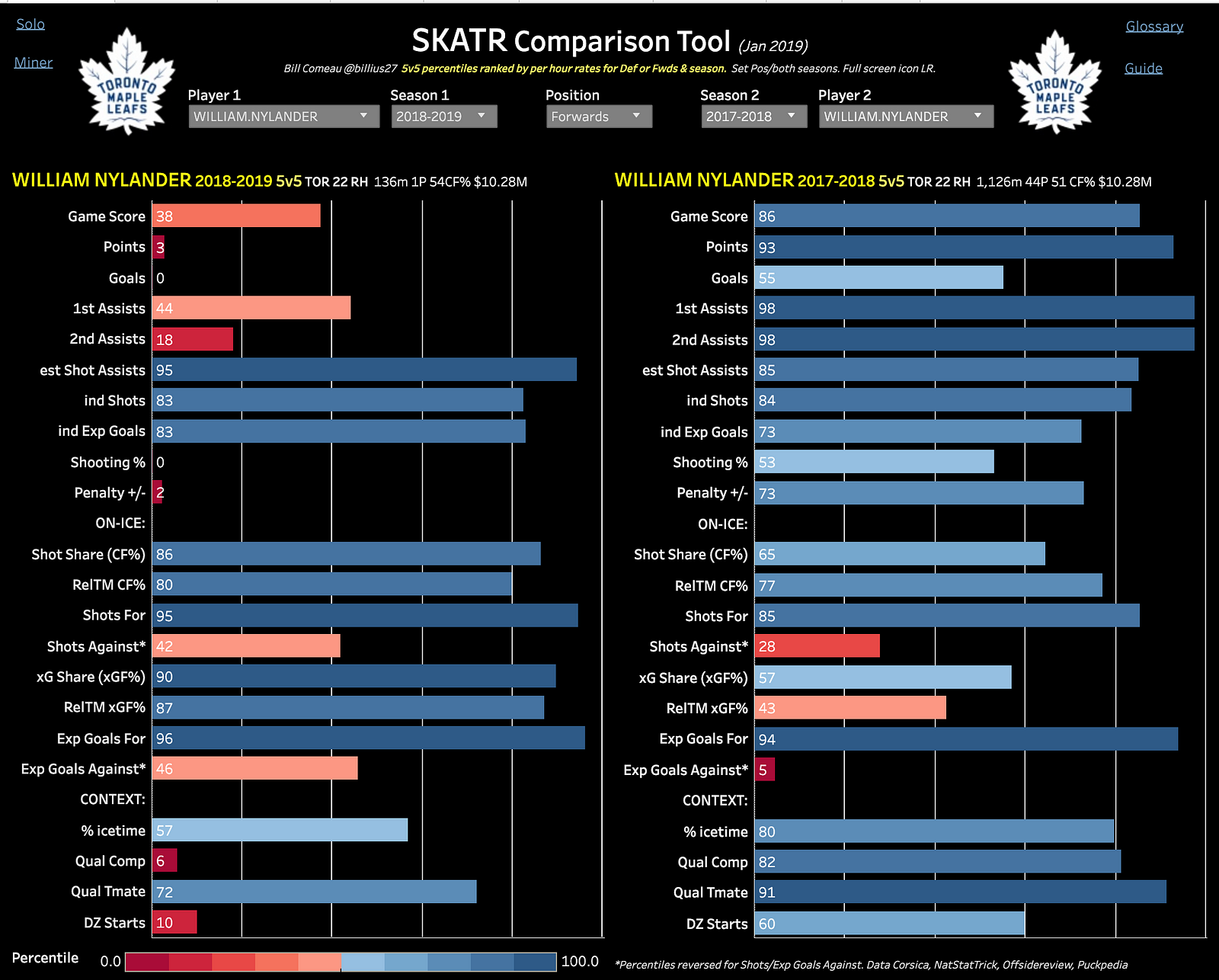Zanzibar Buck-Buck McFate said:
I am not trolling you herman but I absolutely don't get the line of reasoning that the least controllable effects a player has on a game are the only results that really matter. In philosophy they call that a "category mistake" (or a basic ontological error).
Happy to discuss!
First off, let?s look at what I actually wrote:
that second block of bars is a far more stable indicator of the player?s controllable effect on the game.
I?m certainly not saying that goal results do not matter; what I?m saying is that puck possession metrics in this sample of games is a better indicator of the player?s performance. Implicit in shot metrics are how much the team has the puck when this player is on the ice. We can probably pick out why Nylander is such a good play driver with some video, as outside of the first 4 games he?s been forechecking well, stealing pucks at a higher per 60 rate than anyone else on the team right now, and exiting/entering zones with impunity. The numbers say when Nylander Ian on the ice, the puck ends up in the OZ for shots far more often than not.
If that?s happening so often, why isn?t the puck in the net? He?s attacking from good parts of the ice, his teammates aren?t garbage, what gives? Puck luck, whether people recognize it or not, is a thing. A player can do everything right to get into position and take a good pass in his wheelhouse and something prevents the goal (broken stick, rut in the ice causes a dman to stumble into just the edge of the puck and deflects it, whatever). Goals are rare in this game for a reason. On the other hand you also get Ron Hainsey goals where he blindly slaps it 4 ft wide but it clips the dman?s back skate as he?s turning to crosscheck someone and the puck finds the net. In a small sample (i.e. a handful of games), those results are highlighted. After a quarter of a season (and sometimes it takes a whole season ? see William Karlsson or David Clarkson) their actual level of play is revealed (how many has Hainsey scored since his week of two goals?).
The Leafs as a team, by shot metrics,
has climbed significantly since Nylander?s return. Not all of it is specifically because of him but his presence adds to our depth and our depth is overtaking their opponents. It?s setting up our top lines for cushy offensive starts and generally getting them into better position to do damage.

